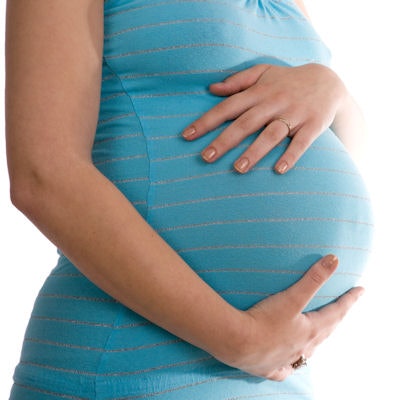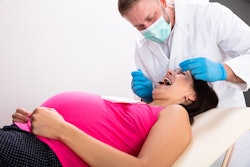
Approximately 90% of women know that taking care of their teeth and gums during pregnancy is important, yet only about 60% go for dental cleanings, according to a new study published on November 6 in BMC Oral Health.
The researchers found that women who knew dental care was crucial were 1.4 times more likely to have their teeth cleaned during pregnancy, proving that educating expectant mothers about the value of good oral health works.
"A large proportion of women knowing of the importance of dental care during pregnancy did not receive care," wrote the authors, led by Chandni Muralidharan, BDS, of the public health department at Brigham Young University College of Life Sciences in Provo, UT.
Dental care is safe and effective at reducing the risk of adverse personal health and pregnancy outcomes, which is why healthcare professionals recommend women visit dentists during their pregnancy. However, many don't, despite the recommendations. Several factors, including whether a healthcare professional talked to them about the importance of good oral hygiene during pregnancy and whether they had dental insurance, influenced whether they had their teeth cleaned, the researchers found.
The study included about 2,800 pregnant women who completed the 2014-2015 Utah Pregnancy Risk Assessment and Monitoring Survey (PRAMS).
About 20% of the pregnant women had dental problems and needed to see a dentist, but only about three-fourths of them did, the researchers found. Dental insurance appeared to play a major role in whether women sought treatment or went for a cleaning. Pregnant women who had dental insurance were 1.9 times more likely to have their teeth cleaned and 1.6 times more likely to get dental treatment.
Of the women who received treatment during pregnancy, 70% of them had a dental or healthcare professional talk to them about caring for their teeth and gums. These women were more likely to recognize the importance of dental care during pregnancy, according to the study authors.
The pregnant women who were least likely to seek and receive dental care were younger, minorities, and unmarried and had lower incomes and less education. The data may be useful in further focusing on guidelines, resources, and educational efforts for this group of women, the authors noted.
Despite the findings, the study was limited in that the PRAMS is cross-sectional with a 60% response rate, making it prone to response bias, according to the authors. Also, to find a relationship between teeth cleaning before and during pregnancy, researchers asked about dental care while the women were pregnant and the 12 months prior. However, some women did not know exactly when they became pregnant, possibly affecting the results, they noted.
Knowledge of the importance of dental care during pregnancy and ensuring access to cleanings and treatments are necessary for the health of mother and child, the authors concluded.
"Having a dental or healthcare worker talk with them about how to care for their teeth and gums and having dental insurance during pregnancy are positively associated with dental care during pregnancy," they added.




















